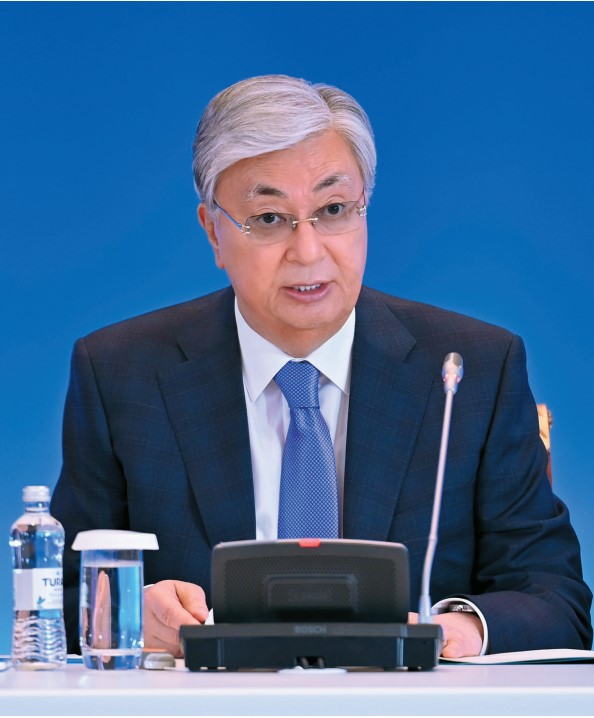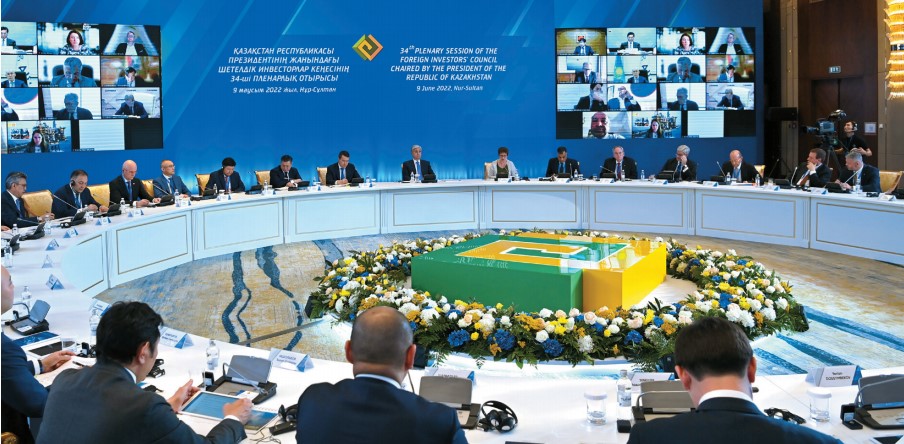Exclusive
Nine Steps in the Green Direction. Summary of the Foreign Investors’ Council meeting

On June 9, the 34th plenary meeting of the Foreign Investors' Council was held in Nur-Sultan under the chairmanship of the President of Kazakhstan, Kassym-Jomart Tokayev. The event was attended by heads of major multinational companies operating in Kazakhstan, heads of government agencies, and representatives of international organizations. The meeting agenda included issues of decarbonization of the Kazakhstani economy and the introduction of low-carbon technologies.
Petroleum outlined nine main messages of the head of state.
"Kazakhstan remains the main investment magnet among the Central Asian countries, having managed to return to the pre-pandemic level of attracting foreign investments."
The Head of Kazakhstan stressed that further improvement of the investment climate and improvement of the investors' legitimate rights protection system are strategic tasks of the state.
– Last year, foreign partners invested about $24 billion in our economy, which is 38% more than a year earlier. Remarkably, the non-primary sector of the economy already accounts for over 60% of total foreign investment inflows. We greatly appreciate these investments and shall do everything to fulfill all our obligations to foreign partners. Kazakhstan will only strengthen the policy of open doors for investors," Kassym–Jomart Tokayev assured.
The President added that systematic work to improve the investment climate would be accompanied by large-scale reforms. They aim to develop fair competition, rooting out corruption, creating effective public administration, improving the quality of human capital, and reforming the judicial system.

"The developed draft Strategy for Achieving Carbon Neutrality by 2060 covers large-scale economic, technological, and social changes and must be adopted by the end of this year.
Tokayev noted that 80% of all greenhouse gas emissions in Kazakhstan are associated with the production of energy from fossil fuels, which is the main factor that has a negative impact on the country's climate. In this regard, according to the President, the energy industry's modernization is crucial.
"The government is working to bring the national emissions trading system closer to the European one."
The President recalled the intention of the European Union to reduce greenhouse gas emissions by 55% by 2030 and achieve carbon neutrality by 2050. At the same time, he drew attention to the fact that starting from 2026, Kazakhstani exporters will pay a carbon border tax to the EU budget, which may affect the competitiveness of domestic products.
– It is necessary to accelerate the revision of the methodology for calculating specific factors for greenhouse gas emissions toward tightening the requirements. The calculation approach should be similar to the European one - based on the top 10 enterprises in the industry. We have to consider not only primary but also secondary types of production, as well as expand the coverage of economic sectors similar to the European Union Emissions Trading System. I ask members of the Council to provide practical assistance. This work should be completed next year," the President of Kazakhstan said.
"A draft National Carbon Quota Plan for 2022-2025 has been developed, which provides for an annual reduction of free quotas by 1.5%, and from 2026 by at least 5%."
The Head of State pointed out the need for a phased transition to a paid distribution of quotas for export-oriented sectors of the economy. In his opinion, the domestic quota trading system should be based on reliable data on measuring and verifying greenhouse gas emissions.
– However, in practice, we see a completely different picture. Authorities for validation and verification of greenhouse gas emissions do not visit the sites of plant operators, certifying the submitted reports remotely. Thus, they can simultaneously verify about 20 reports from different regions of the country. This raises serious doubts about the reliability of such reports. Therefore, I instruct the Government to take adequate measures to enhance the responsibility and competence of the authorities for the validation and verification of greenhouse gas emissions," the President said.



